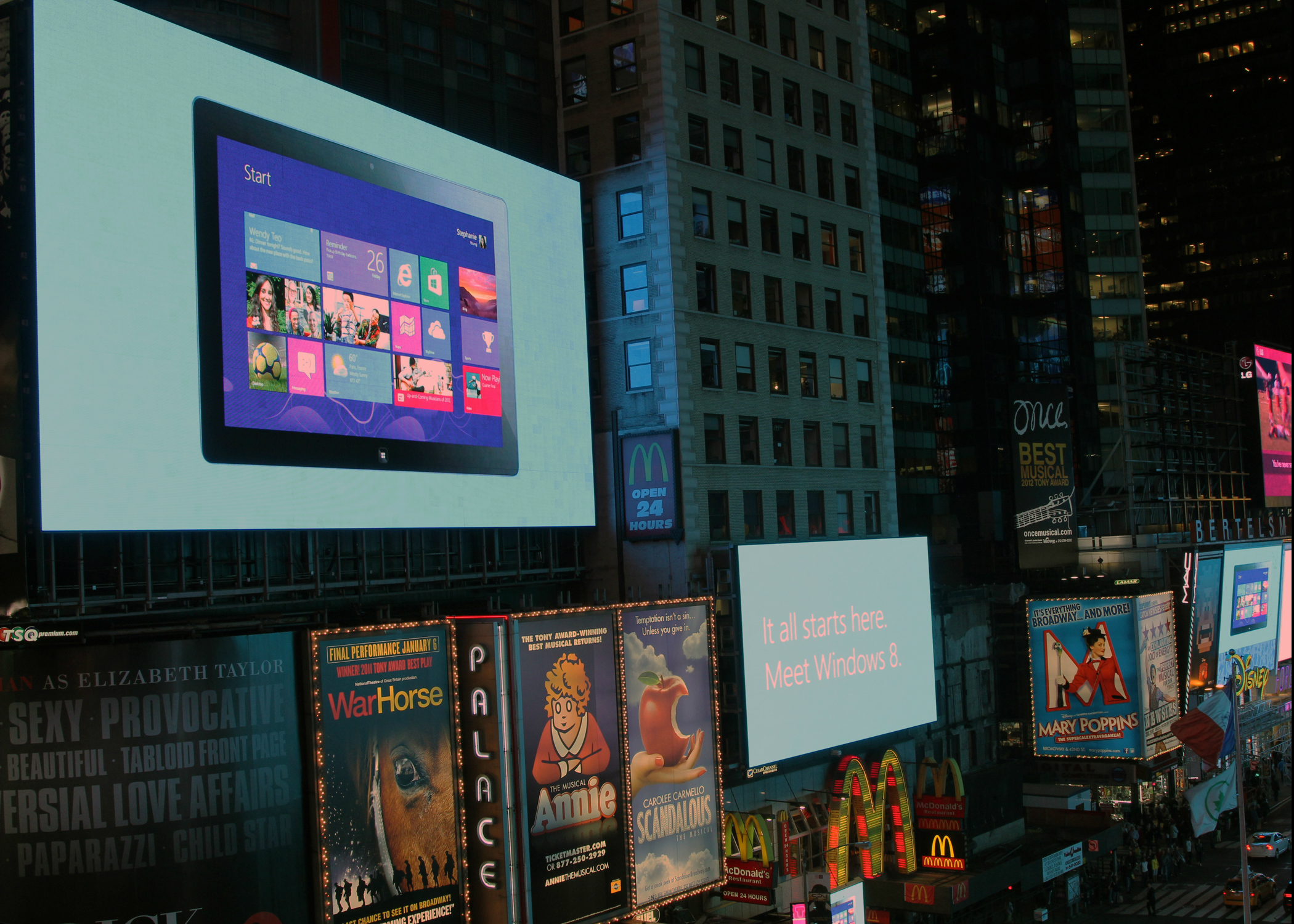
Today is Windows 8 day across the globe, and it's a different world for Windows
The disused Pier 57 pavilion in New York City's Meatpacking District served as a fitting backdrop for Microsoft's Windows 8 launch party yesterday. The ramshackle warehouse is currently only used as a location for big monthly events, and not for any daily purpose. The big blocks of color, and simple, attractive Windows 8 logos stood in stark contrast to the rough building itself. It was easy to see the entire event as a metaphor for the current state of the personal computer industry.
The entire PC market has been in decline across the board, and Windows revenue has fallen for the last two years according to three leading market research firms IHS iSuppli, Gartner, and IDC. Despite the unquestionable popularity of mobile devices, the PC is hardly less relevant or less valuable than it was. The more pressing problem has been the difficulty individuals and businesses have in justifying the purchase of a new machine in such low economic times.
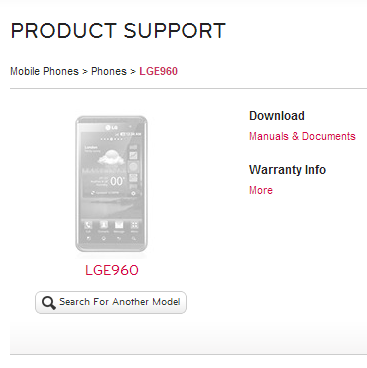
LG Australia lists LGE960 as Google Nexus device, worst kept secret?
Four weeks ago my colleague Joe Wilcox discussed a rumor pertaining a new Google Nexus device. Just days ahead of the October 29 event that the Mountain View, Calif.-based company will hold in New York, LG Australia lists the LGE960 as a Nexus device.
The South Korean manufacturer added a support page for the LGE960, but gives away just a small amount of details. It looks to confirm that the search giant will indeed release a Nexus device that will be available for purchase online straight from the Google Play Store. Another interesting detail is that Australian carriers will also offer the device, suggesting that it may happen in other markets as well.

Google adds visual terrain to Maps
With all the Maps and Street View improvements that Google’s been rolling out lately you’d think the company had something to prove. Apple might be able to fix some of the many issues that plague its fledgling service, but it’s going to struggle to ever catch up if Google continues to advance its mapping tool at the rate it has been recently.
Google’s latest change is to the basemap you see when you open the service in your browser. Whereas before a zoomed out view of the world showed a fairly basic map, with borders, country names and some sparse vegetation, now it shows a more colorful view, with detailed terrain, making it much easier to identify forests, deserts, and mountain ranges.
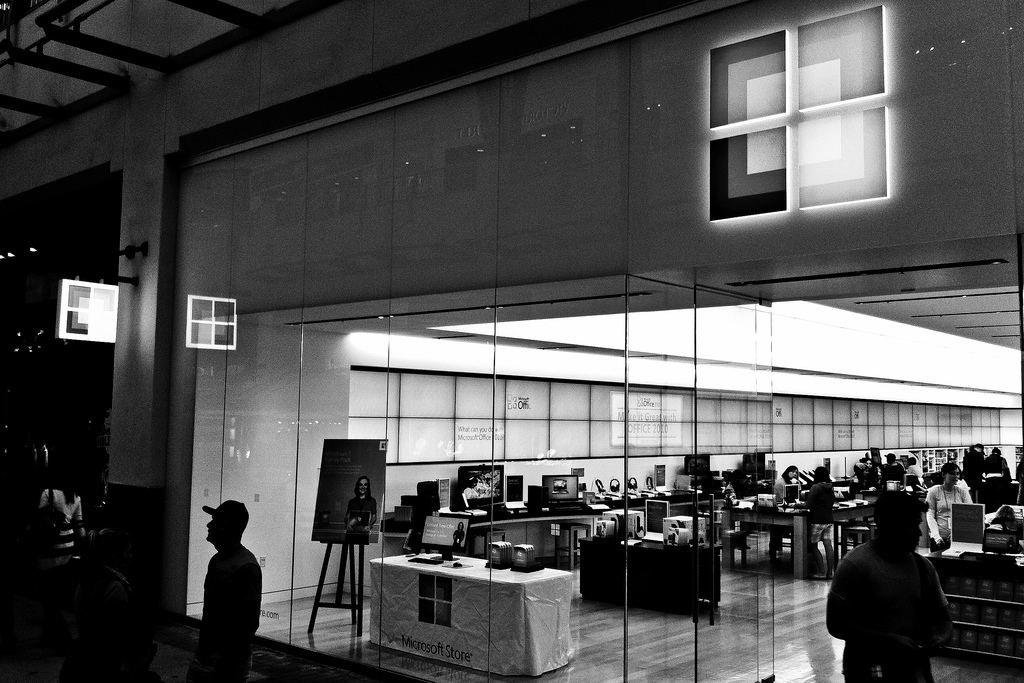
If you're looking for Windows 8 PCs, don't shop Microsoft Store
I simply don't know what to say. Some things are so perplexing, so exasperating no description makes sense. In writing a story about Windows 8 PC deals, I naturally called several Microsoft Stores. None have systems for sale. Same goes for the company's online shop. It's ore-order only, baby. What the frak?
I'm confused. Didn't Windows 8 launch today, with Microsoft spending beau coup bucks marketing the operating system? Currently, Microsoft operates 27 permanent stores, with another opening in Toronto, Ontario November 16. Shops are also planned in Ohio and Puerto Rico, but dates aren't officially disclosed. Thirty-two holiday stores opened today. With nearly 60 stores open, in 27 states and three Canadian provinces, shouldn't Microsoft have PCs to sell on Windows 8's launch day?
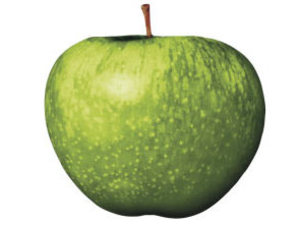
Apple now owns The Beatles' iconic record label logo
Steve Jobs was a huge fan of the Beatles and would no doubt have been pleased by the news that his company finally now owns the Granny Smith logo of the band’s holding company, Apple Corps.
The two Apple firms faced off in court regarding trademark infringements three times in a long running dispute, and although the Beatles’ company won the initial two cases, in 1981 and 1991, the third case was settled in Apple Inc.’s favor in 2007 when, for an undisclosed fee, Jobs’ company secured the rights to all Apple trademarks and logos, provided they agreed to license them back to the music company. Three years later Jobs successfully brought the Beatles back catalog to iTunes.
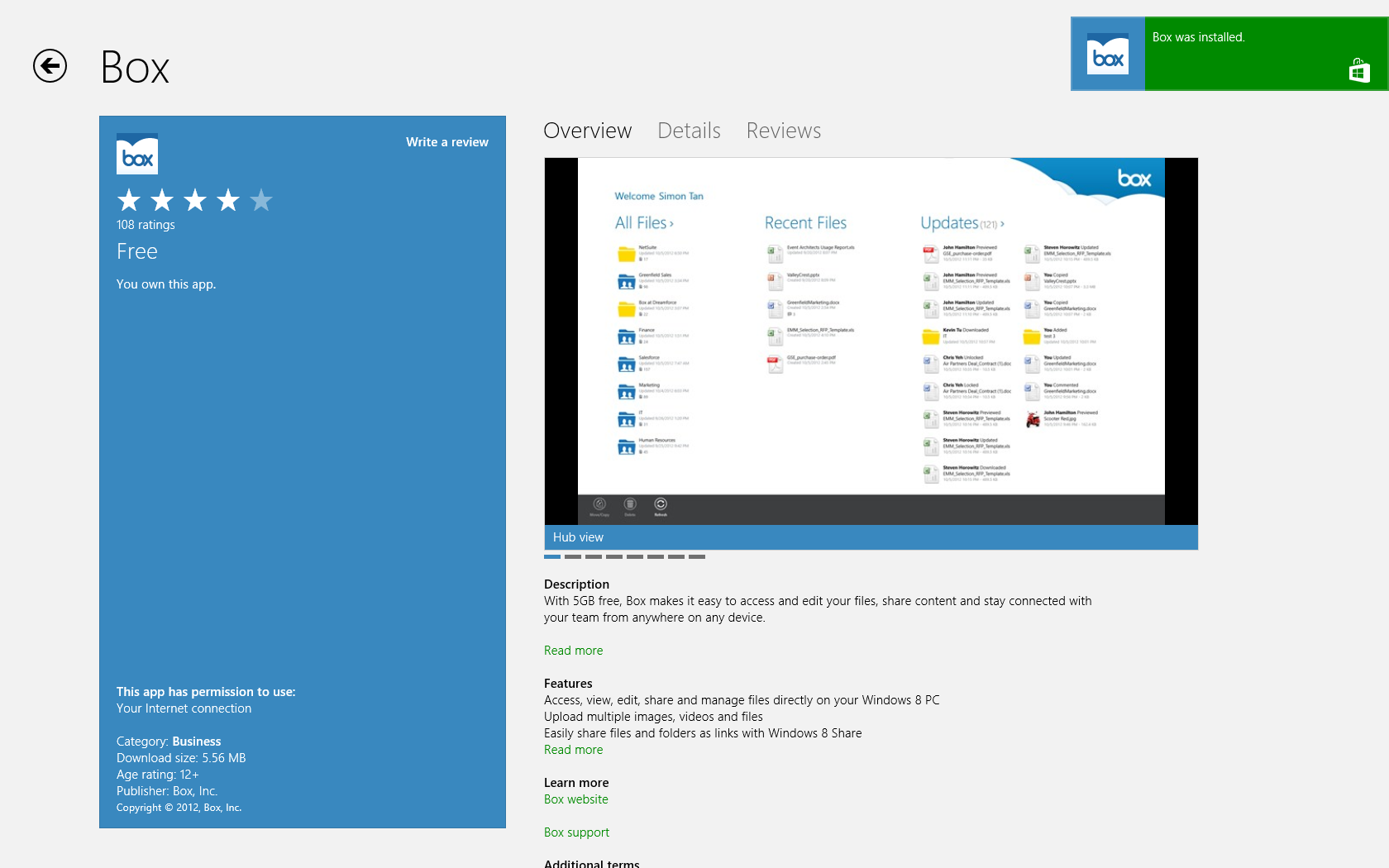
Box cloud storage is app available in the Windows 8 Store
Windows 8 launches today across the globe, but still with a limited selection of programs compatible with the new user interface. Box is now among the first popular cloud storage services to offer an application through Windows Store, ahead of similar services like Dropbox or Google Drive.
The Box app is available as a free download and offers access to the cloud storage service straight from the new interface. Uploaded files can be accessed, viewed, edited and shared using the app and, just like signing up from the browser, offers 5GB of free storage. It takes advantage of the included "Share" function from the Charms menu to upload locally stored files or share the ones already in the cloud with other apps such as Mail or People.
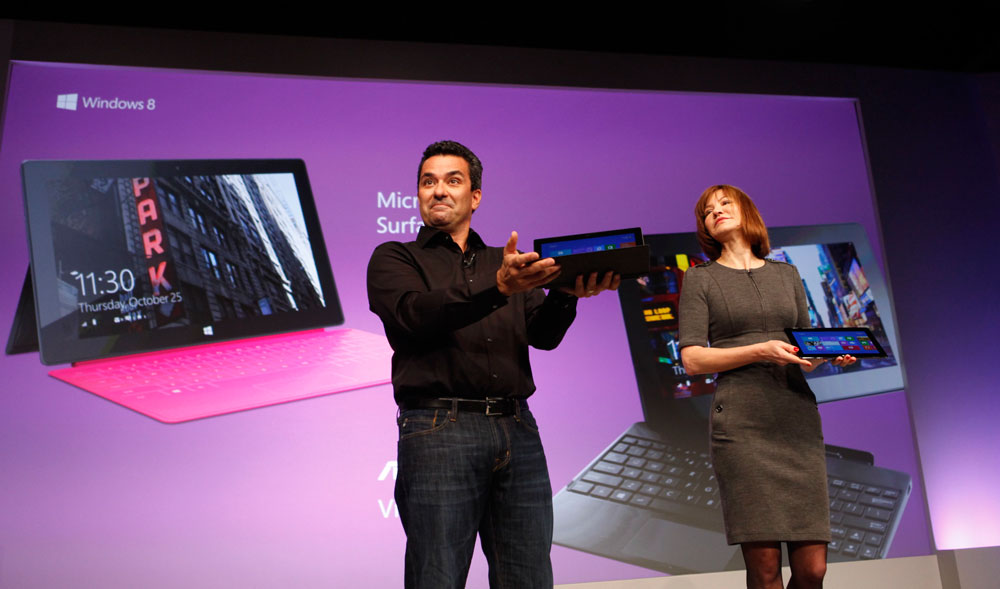
Where can you get a good deal on Windows 8 PCs?
It's here! Today Windows 8 launches around the globe, and Surface tablets, too. For years, I've said nobody partners like Microsoft, and the company is front and center promoting retailers and PC manufacturers. That's good for you, if you waited for the OS to take advantage of some of the most interesting new computer designs to hit the market in years. Not surprisingly, the company has posted a list of some of the deals available starting today.
Windows 8 is Microsoft's most important product launch ever. It's a defining operating system, as the company seeks to maintain computing relevance during the shift from the PC era to cloud-connected devices. "What you have seen and heard should leave no doubt that Windows 8 shatters perceptions of what a PC now really is, Microsoft CEO Steve Ballmer boasts". "We truly re-imagined Windows, and kicked off a new era for Microsoft, and a new era for our customers". He spoke yesterday during the pre-launch event in New York City.

Apple spins loss in UK court to make Samsung look bad
Back in July, UK Judge Colin Birss ruled that "Samsung isn't cool enough to copy Apple." As a result, after losing the appeal, the Cupertino, Calif.-based corporation issued a notice on its United Kingdom website, but it's not what you'd expect.
Apple was supposed to explain to the visitors of its website that Samsung did not copy iPad design with the Galaxy Tab. Instead, Apple carefully placed the UK-based court in a bad light in relation to other court rulings from Germany and the United States. In the latter, Apple was awarded $1 billion in damages, with Samsung losing on both occasions as the copycat. Apple played the notice to its advantage.
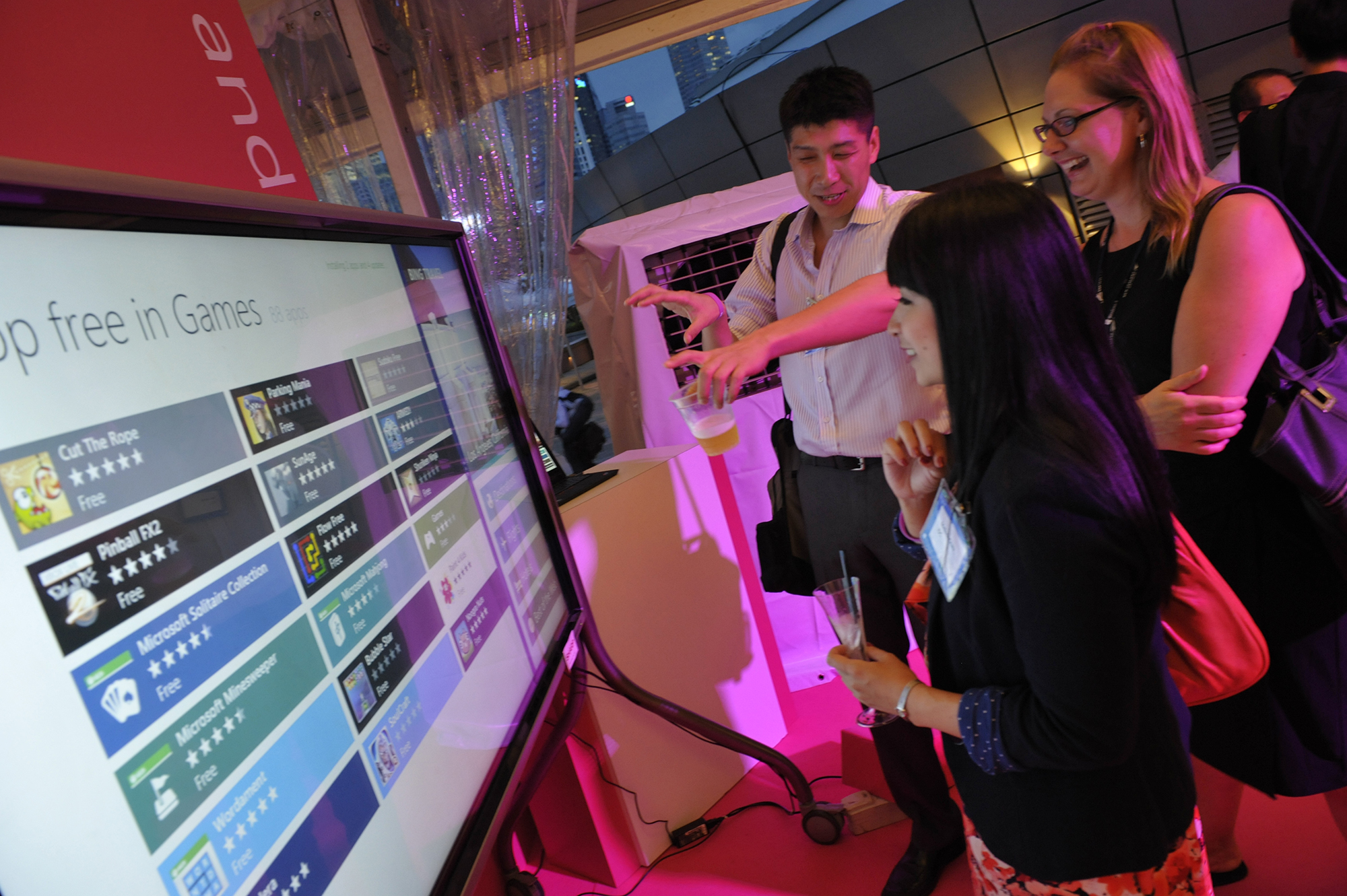
Before buying Windows 8, use Upgrade Assistant
It is here. After months of waiting, beta releases and consumer previews, Windows 8 has finally hit the shelves and download servers. If you’re considering upgrading the next thing you need to consider is whether your computer is up to the task, whether all of your hardware is going to be compatible and how many of your applications are going to need to be upgraded. These are all questions that can be answered by the Windows 8 Upgrade Assistant.
As Windows 8 is the first version of Windows to be made available as a download, it should come as no surprise that once you have run through the Upgrade Assistant you will be invited to purchase the latest version of the operating system. Compared to previous versions of the assistant, the Windows 8 specific release seems to take rather more time over system analysis during which all of your hardware and software will be checked.
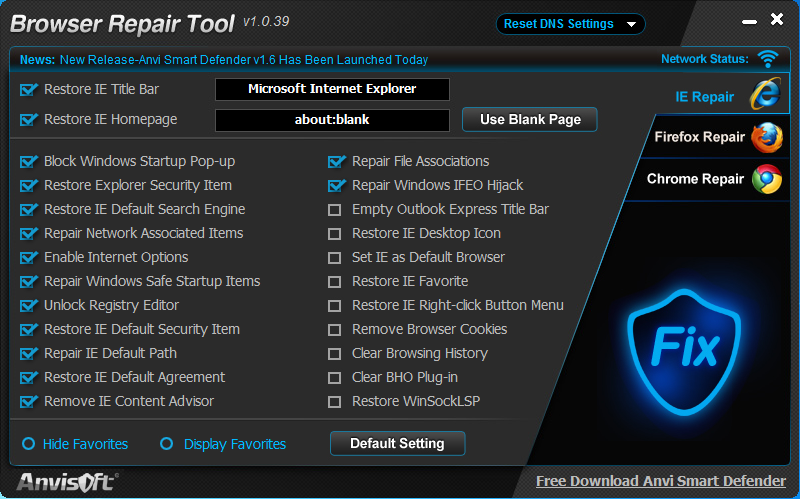
Has malware trashed IE settings? Try Browser Repair Tool
When your PC is infected by malware then of course you’ll want to remove it immediately, but that won’t necessarily be the end of your problems. Malware will often change key browser or Windows settings to suit its needs, and restoring these can take a very long time.
Or you could just use Anvisoft’s free Browser Repair Tool, which claims it can fix everything you need with just a single click.
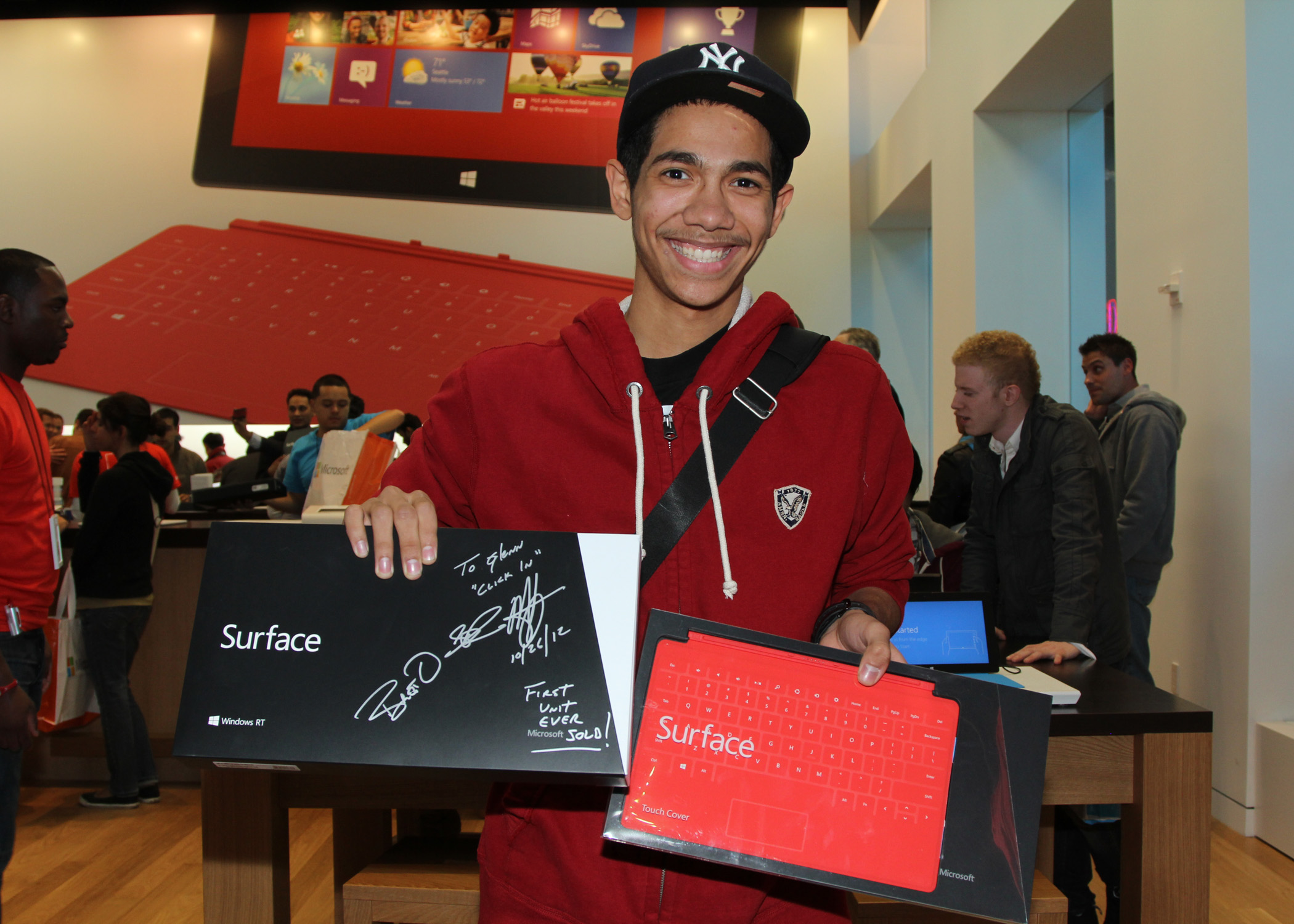
Surface available at Microsoft retail stores in Canada and United States
Microsoft officially launched Windows 8 and Windows RT across the globe today. Along with the new operating systems, the Redmond, Wash.-based corporation also makes its branded Surface tablet available at all Microsoft 27 retail, 34 holiday and online stores across United States and Canada.
Microsoft Surface starts at $499in the United States, AU$599 in Australia, CDN$519 in Canada, EUR479 in Germany, EUR489 in France, and GBP399 in the United Kingdom for the 32GB version without the Touch Cover.
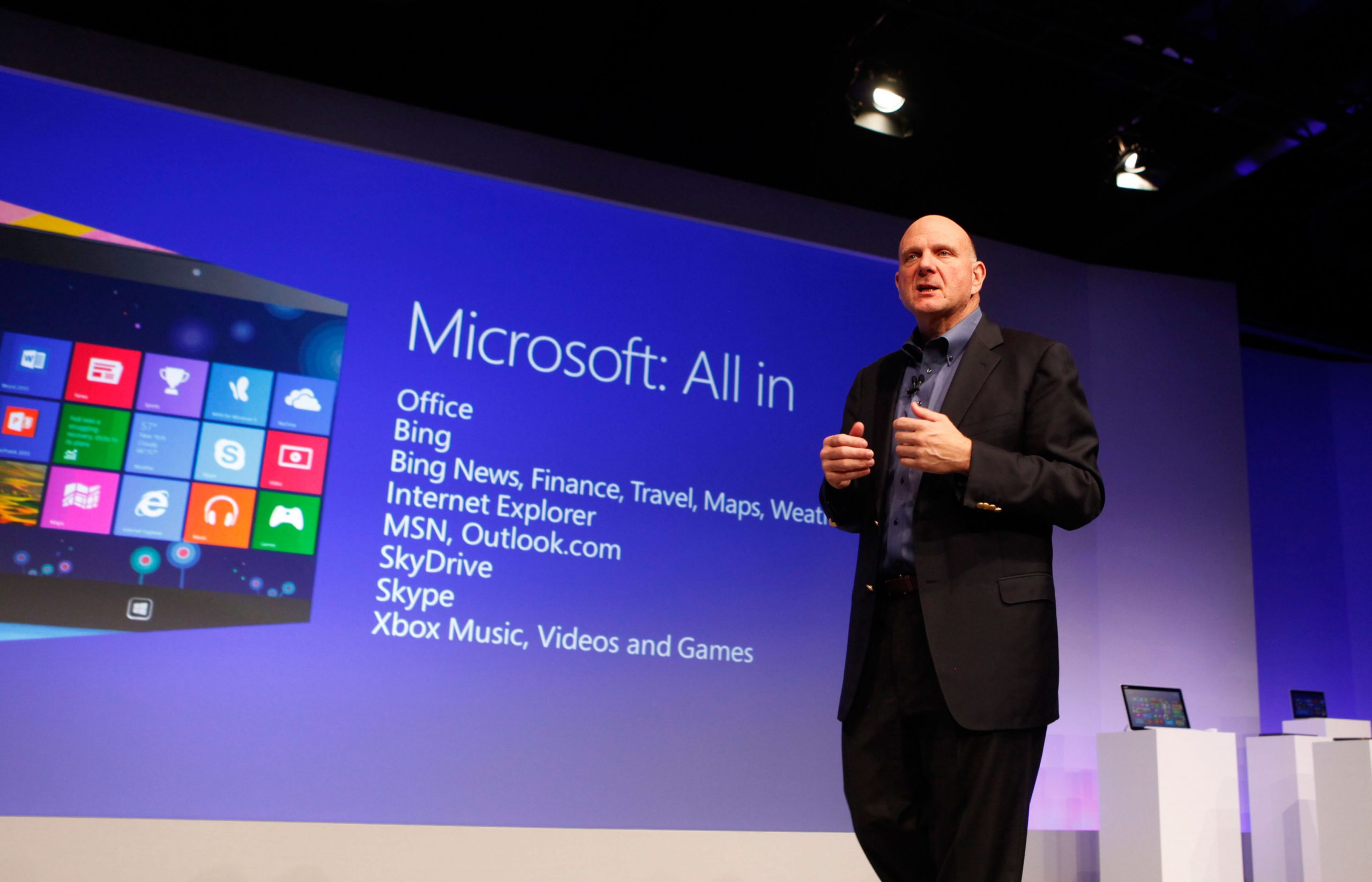
On Steve Ballmer's big day, a look back 11 years
Today is a big day for Microsoft, with the Windows 8 and tablet launches, and potentially a very big day, too, for Microsoft CEO Steve Ballmer. It had better be, because some pundits think Win8 is Ballmer’s last hurrah, that he’ll be forced to step down if the new operating system isn’t a big success. That might be true, though I have a hard time imagining who would replace Ballmer at this point and how the company would change as a result. I’m not saying there isn’t room for improvement -- heck, I’m among those who have called for Ballmer to go -- I’m just not sure what would be any better. More on that in a future column.
Today, rather than look to the future or even to Windows 8, I’d like to write more about Ballmer, putting his reign at Microsoft into some context.
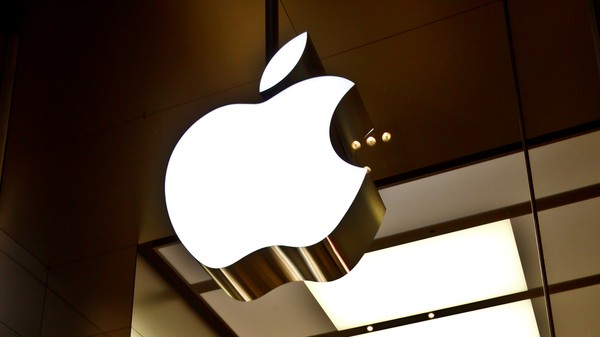
Apple Q4 by the numbers: $36B revenue, $8.67 EPS misses Wall Street consensus
Late this afternoon, Apple announced another blow-out quarter and closed fiscal 2012, ending Tim Cook's first full four quarters as CEO. The challenge ahead is to maintain or to even extend momentum as cofounder Steve Jobs' influence over strategy and product development grows more distant. He died a year ago last month.
On Wednesday, financial analysts got an unexpected October surprise, and not iPad mini. Cook revealed that Apple sold its 100 millionth iPad about two weeks earlier. Problem: By that reckoning most analysts had over-estimated the tablet's quarter. Philip Elmer-DeWitt sums up the impact: "As a group, these analysts lowered their iPad estimates an average of 2.67 million units. Most also lowered their revenue and earnings estimates, an average of $1.26 billion and $0.31, respectively". If you're an investor wondering why Apple shares declined most of the day ahead of earnings, there's a reason.

Microsoft, stand up to Apple!
For a moment there I got really excited -- that Microsoft had pulled a brilliant marketing maneuver -- only to be disappointed. Within the hour I received email from the company's PR agency with subject line: "Microsoft announces Windows 8 global availability". Holy cow pies! A day early! Stop the presses. Sure enough the official press release proclaims: "Windows 8 arrives". Except it hasn't. You still have to wait until Midnight tonight. Bummer.
I knew there was trouble when rushing to Microsoft Store online that Surface RT tablets and Windows 8 are still pre-order. When going back to actually read the fine print, sure enough the press release qualifies "beginning Friday". Excuse me for nit-picking semantics, but doesn't "arrives" mean now? (Granted, it's Friday somewhere in the world and has been for more than six hours. But the announcement and New York prelaunch don't coincide with anything like Midnight anywhere in the world.)
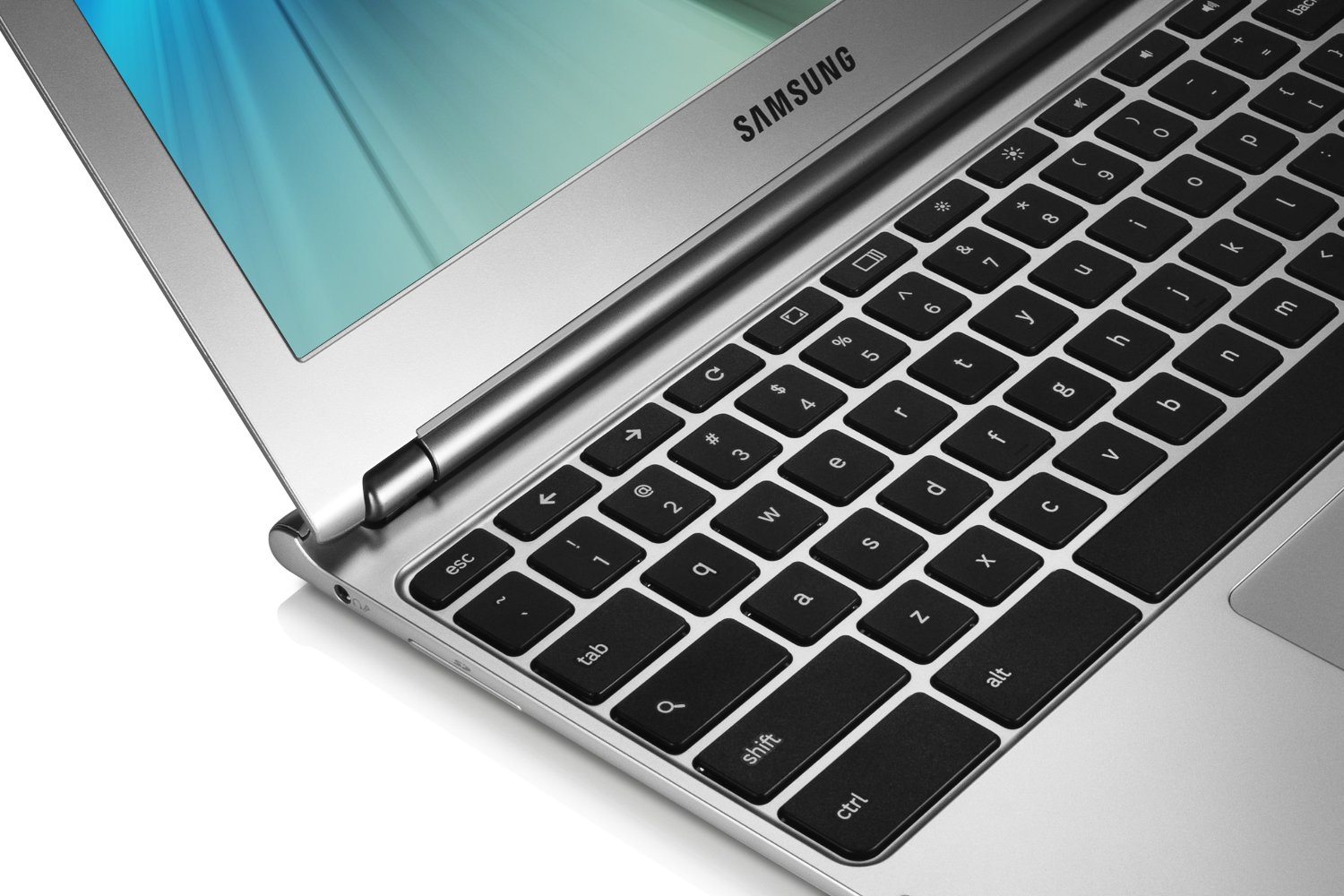
New Chromebook is Amazon top-seller
Apple should learn something from Google and Samsung. In a poll which results I'll post today, the majority of respondents tell us that iPad mini costs too much; prices start at $329. Meanwhile, the 11.6-inch Chromebook is priced just right. The WiFi model is Amazon's laptop top-seller, while the $329.99 3G model is No. 4 (and declining). Both models are sold out, like Google Play. Get one, if you can!
Many of you want new Chromebook, which swaps x86 for ARM architecture. So far, 1,770 people have responded to buying poll "Why you buy $249 Chromebook?". More than 35 percent plan to get one within 3 months, while 15.37 already placed orders. How funny if Google's Chrome OS portable turned out to be autumn's ARM sleeper sales success, and not iPad mini or Microsoft Surface.



